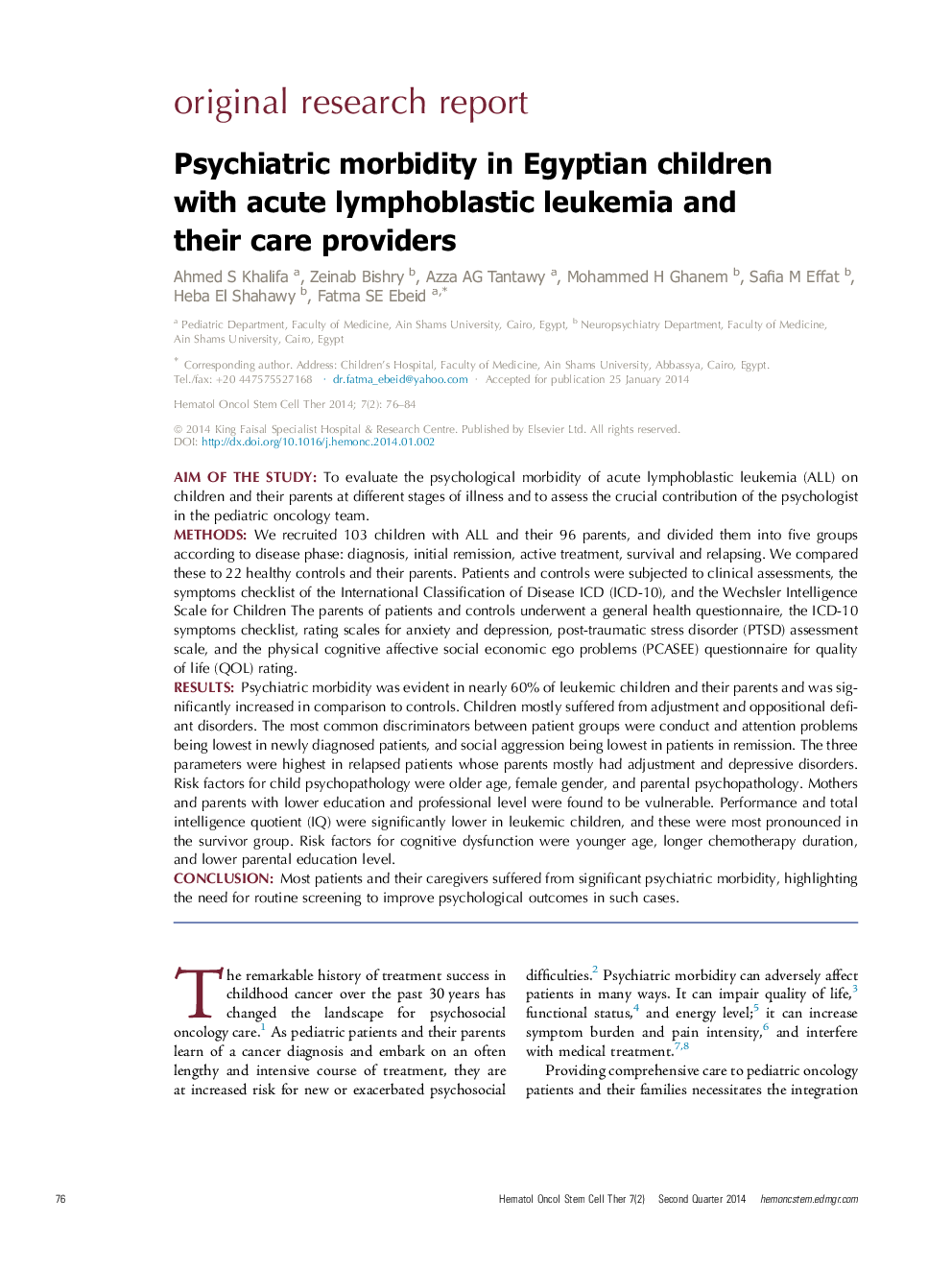| کد مقاله | کد نشریه | سال انتشار | مقاله انگلیسی | نسخه تمام متن |
|---|---|---|---|---|
| 2135760 | 1087637 | 2014 | 9 صفحه PDF | دانلود رایگان |
Aim of the studyTo evaluate the psychological morbidity of acute lymphoblastic leukemia (ALL) on children and their parents at different stages of illness and to assess the crucial contribution of the psychologist in the pediatric oncology team.MethodsWe recruited 103 children with ALL and their 96 parents, and divided them into five groups according to disease phase: diagnosis, initial remission, active treatment, survival and relapsing. We compared these to 22 healthy controls and their parents. Patients and controls were subjected to clinical assessments, the symptoms checklist of the International Classification of Disease ICD (ICD-10), and the Wechsler Intelligence Scale for Children The parents of patients and controls underwent a general health questionnaire, the ICD-10 symptoms checklist, rating scales for anxiety and depression, post-traumatic stress disorder (PTSD) assessment scale, and the physical cognitive affective social economic ego problems (PCASEE) questionnaire for quality of life (QOL) rating.ResultsPsychiatric morbidity was evident in nearly 60% of leukemic children and their parents and was significantly increased in comparison to controls. Children mostly suffered from adjustment and oppositional defiant disorders. The most common discriminators between patient groups were conduct and attention problems being lowest in newly diagnosed patients, and social aggression being lowest in patients in remission. The three parameters were highest in relapsed patients whose parents mostly had adjustment and depressive disorders. Risk factors for child psychopathology were older age, female gender, and parental psychopathology. Mothers and parents with lower education and professional level were found to be vulnerable. Performance and total intelligence quotient (IQ) were significantly lower in leukemic children, and these were most pronounced in the survivor group. Risk factors for cognitive dysfunction were younger age, longer chemotherapy duration, and lower parental education level.ConclusionMost patients and their caregivers suffered from significant psychiatric morbidity, highlighting the need for routine screening to improve psychological outcomes in such cases.
Journal: Hematology/Oncology and Stem Cell Therapy - Volume 7, Issue 2, June 2014, Pages 76–84
